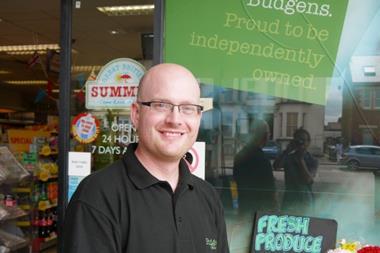When the previous government introduced the Anti-Social Behaviour Order (ASBO) in 1998, it was presented as an innovative solution to control low-level crime in our communities. Fast forward 13 years, and there’s no doubt that the ASBO scheme has become something of a public joke, and in some circles a badge of honour among unruly youth.
The new government has already signalled its intention to replace ASBOs with Criminal Behaviour Orders (CRIMBOs perhaps?) and has launched a public consultation.
What we want:
Similar penalties for attacks on shopworkers to those for crimes against other public servants such as nurses and police
A more visible police presence on the streets to act as a deterrent to criminals
A commitment to investigate low-level crimes that affect retailers
The plans allow the authorities to ban an individual from certain activities or places, a breach of which would result in a prison term of up to five years, as well as updating ‘direction’ powers that would give police more power to direct any individual causing or likely to cause crime away from an area and confiscate related items. They would also create community triggers which would compel local agencies to take action if several people have complained about an individual and nothing has happened.
But is this merely an ASBO by a different name, or a genuine step forward?
Crime prevention minister James Brokenshire believes it is the latter, and that the overhaul will make it easier to clamp down on illegal activity.
“For too long, anti-social behaviour has wreaked havoc in our communities and ruined decent people’s lives,” he says. “It is time for a new approach that better supports victims and makes it easier for the authorities to take fast, effective action.”
However, the proposals have been met with derision by retailers. NFRN national president Parminder Singh claims they are a “rebranding exercise” and don’t address the failures of the system.
What you can do
Make a submission to the public consultation:
http://www.homeoffice.
gov.uk/publications/
consultations/cons-2010-antisocial-behaviour/asb-consultation-document
Contact your local police force’s crime prevention officer to arrange a meeting and address any concerns
Ask what you can do to help them tackle crime, helping to build a better relationship between you and the police.
This reaction comes as the government faces a backlash over police funding cuts. A recent survey by Ipsos MORI revealed that 86% of the public said they would be worried if the police stopped providing the current range of services, and 44% said that they would be very worried.
Police Federation chairman Paul McKeever says that the government needs to listen to the people. “A cut of 20% over four years will inevitably lead to a poorer service, increased crime rates and will seriously jeopardise public safety and the security of the nation,” he says.
Concerns over police cuts have also been aired by a home affairs Select Committee. With more than 20,000 officers being cut over the next four years, the cross-party group of MPs has called on the government to at least acknowledge the “risks involved with this transition”, especially in the run-up to next year’s Olympic Games.
It’s not just police cuts that are attracting attention from the public. More than 4,000 people have signed a petition calling for harsher sentences for crimes against retailers. The petition, which will be presented to Downing Street, was set up by the son of murdered Huddersfield retailer Gurmail Singh.
Jasmohan Hayre says that the majority of the individuals involved in the attack on his father had already committed crimes against other shopkeepers and were only given suspended or community rehabilitation sentences. “Those individuals chose to target an independent; they didn’t go to a Tesco Express or a Sainsbury’s Local because we can’t afford security guards in smaller independent shops.
“It’s a chance for government to show they can do something right in this case and provide greater sentences and be fairer to the victims of crime.”



















No comments yet